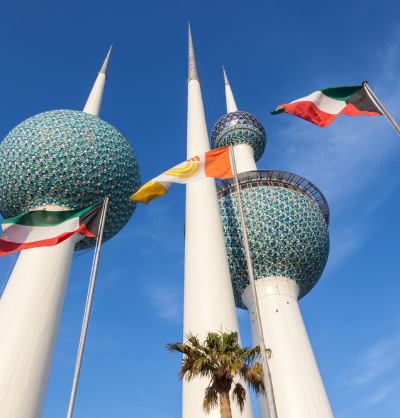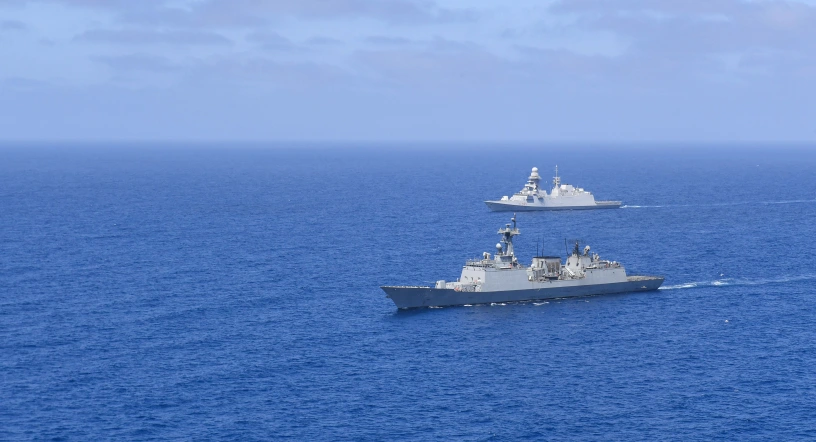THE ROLE of naval coalitions to support maritime security has grown in strategic importance since the end of the Cold War. This is largely due to the increase of maritime trade and, as a result, that the oceans have become an ever-growing stage for a variety of illicit activities ranging from piracy to the smuggling of illicit weapons, fuel, and drugs, as well as human trafficking.
Some regions are more unstable than others. The Gulf of Aden, for instance, is plagued by such instability and yet remains a major seafaring hub with some 10% of global trade passing through the Bab el-Mandeb bottleneck, into the Red Sea, through the Suez Canal and into the Mediterranean. The region has historically been one of the most intense piracy hotspots in the world. The security of these shipping lanes requires major international naval cooperation. Consider that even China has established a naval base in Djibouti — its first overseas naval endeavour — hosting a small anti-piracy mission to ensure the freedom of navigation of its own merchant fleet through the Bab El-Mandeb.
As for consistent naval coalitions in the region, the Combined Maritime Forces (CMF), a multinational coalition of 38 countries led by the United States and headquartered in Manama, Bahrain, has created several task forces, including Combined Task Force 151 (CTF-151) in 2009. This follows the principles enshrined in the 1982 United Nations Convention on the Law of the Sea (UNCLOS) and specific United Nations Security Council (UNSC) resolutions that aim to prevent and disrupt piracy and other illicit activities in the southern Red Sea, Gulf of Aden, Northern Indian Ocean and Arabian Sea. According to Resolution 2608 (2021), the most recent UNSC resolution against piracy in the region, these joint efforts have been largely effective as there have been no successful hijackings since 2017.
Brazil as a Member of CMF
Although Brazil is far removed from its own strategic environment (re: South Atlantic), it has also been an active contributor over the past years and has twice taken command of CTF 151. In January 2024, it will assume once again command of the mission, proving to be a reliable CMF coalition partner since it joined in 2013 when it deployed its first Liaison Officer (LNO) to Bahrain. Fast forward a few years and in June 2021 it sent its first Admiral to command CTF 151, the first South American Admiral to do so.
At first glimpse, this may seem like an unusual partnership, considering that Brazil’s apparent lack of major strategic interests in the region. Nonetheless, when taking a closer look at the history of cooperation with regional partners, such as the US, it becomes evident that the two countries have cooperated in many instances to guarantee peace and security in the world.
Historic WWII Partners: Brazil and US/Allies
It is interesting to note that significant maritime cooperation between Brazil and the US is enduring. During World War II, Brazil joined the Allied efforts in the Battle of the Atlantic in 1942, after German and Italian U-Boats torpedoed several merchant ships off the Brazilian coast, killing hundreds of civilians. As a result, Brazil officially declared war against the Axis powers on 22 August 1942. Brazil also sent troops to support the Allied effort in Italy in 1944.
Cooperation between Brazil and the Allies in the naval sphere unfolded in many ways, as Brazil’s main mission was to patrol the waters of the South Atlantic during the war, the Brazilian Navy received US training, vessels and equipment to engage in anti-submarine warfare. In October 1942, Brazil launched ‘Task Force 46’ to protect merchant convoys transiting from the Brazilian coast to the Caribbean Sea.* Naval cooperation to safeguard international peace and security has continued; from naval exercises off the western coast of Africa, as a participant in the Obangame Express exercises, led by the US, and comanding the Brazilian Guinex anti-piracy operation, both of which take place yearly in the Gulf of Guinea, all the way to the waters of the Arabian Peninsula, as evidenced by Brazil’s commitment to CMF.
Moreover, Brazil commanded for almost a decade (until January 2021) the Maritime Taskforce (MTF) of the United Nations Interim Force in Lebanon (UNIFIL), the very first UN MTF, which has helped to enforce an arms embargo in Lebanon and train the Lebanese Navy.
Some of the Challenges Ahead for CTF 151
Challenges in the Area of Operations (AOO) of CTF 151 are numerous. Although piracy in the region has been, more or less, under control for several years, its root causes persist in countries such as Somalia, a state that has no control over its northern territory, known as Somaliland, and has suffered from one of the worst droughts in recent history, adding to the socio-economic plight of a population torn by conflict, economic duress and lack of basic needs such as food and water. Currently, some 6.6 million people face crisis-level food insecurity in the country, according to the World Food Programme (WFP). This situation has worsened due to shortages of grain imports and cuts in the funding of the WFP. Food inflation, due to the amount of crops affected by drought, is also a reason for the humanitarian disaster the country is facing. Former pirate networks in Somalia have refocused their illicit activities in other areas at the moment due to the successful monitoring by anti-piracy missions in the region and the economic threat to the country. They could easily return to their former practices if they deem it profitable again.
Recently, because piracy appears to be under control, the international shipping industry has agreed to scrap the High-Risk Area (HRA) denomination for this region, which could negatively impact the Best Management Practices 5 (BMP5) that were followed by commercial vessels to defend against pirate attacks. It may be unwise for the shipping industry to lower its guard, at this time, since an assortment of challenges to maritime security are gathering on the horizon.
Poverty and conflict (re: in Somalia, Eritrea, Ethiopia and Yemen) have led to other considerable humanitarian and security challenges for CTF 151 in the AOO such as human trafficking networks that operate in the Gulf of Aden. According to the International Organization for Migration (IOM), 41,453 migrants crossed the waters of the Gulf of Aden from Obock in Djibouti and Bari in Somalia in the first quarter of 2023 to different governorates in Yemen, in what has become known as the ‘Eastern Route.’ This represents a 56% increase compared to 2022, and these crossing are expected to reach pre-pandemic levels within the year. It is important to recall that in 2018 the ‘Eastern Route’ was considered the most active maritime migration route in the world, surpassing migration flows in the Mediterranean Sea. Yemen remains a transit country for thousands of migrants trying to reach the more prosperous countries of the Gulf Cooperation Council (GCC, Bahrain, Kuwait, Oman, Qatar, Saudi Arabia and the United Arab Emirates).
Other challenges, such as weapons and drugs smuggling in the region, are being addressed by different CMF missions, such as CTF 150, which operates in a similar AOO to CTF 151 but focuses on intercepting vessels suspected of smuggling such illicit goods.
Learning from International Partners
Brazil retains two objectives in relation to its role in international naval coalitions: first, to contribute and learn from a multinational task force, including participation in important naval exercises, as in the case of Focused Operations Mare Liberum, which takes place in the Gulf of Aden. Second, to gain experience that can be used in combating piracy and illicit activities in the South Atlantic, which includes the Gulf of Guinea on the west coast of Africa, currently one of the world’s most notorious piracy hotspots. As part of its entorno estratégico (re: its strategic surroundings), Brazil has regularly contributed to the training of partner countries in the Gulf of Guinea in order to fight piracy and other illicit activities at sea.
*****
Brazil supports a multinational world based on cooperation, trade, and the peaceful resolution of disputes, while maintaining the International Rules Based Order (IRBO) and maritime security. Its ongoing contributions to CMF in the Arabian Peninsula and, specifically, to anti-piracy task forces such as CTF 151 attest to this commitment. Despite the many challenges ahead, this is the world Brazil is proud to have contributed to.
*da Cunha Castro, P. P. (2018). A Participação da Marinha do Brasil na Segunda Guerra Mundial. In G. M. Abreu (Ed.). Marinha do Brasil: uma Síntese Histórica (pp. 240-257). Rio de Janeiro, Serviço de Documentação da Marinha.








